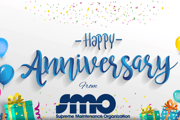
Selecting a BSC for your facility is perhaps the single most important decision you will make when it comes to providing a clean and healthy environment for your occupants. Hiring a BSC that is not aligned with your requirements and expectations can set your program back for months---or longer.
Those BSC's that can demonstrate a tangible commitment to service quality will be better positioned to provide cleaning services that consistently meet your specifications. Those that can demonstrate a robust Quality Assurance Program will typically be at the top of the curve. What should such a program look like? Here are a few things to look for:
Clearly Defined Roles and Responsibilities
The BSC Quality Assurance Program should clearly define roles and responsibilities throughout the cleaning operation. This should not be limited to just cleaning staffs but should extend to every role within the organization. Depending on specific organizational structure this could include the following:
- Cleaning Technicians
- Site Supervisors
- Account Managers
- District Managers
- Quality Assurance Managers
- Operations Managers
Each of the above roles should have clearly delineated reporting structures. In addition, each role should include specific responsibilities that support the overall objective of delivering high-quality services to the client.
Documented Inspection Routines and Metrics
Quality inspections will be the core of any robust BSC Quality Assurance Program. You should verify that the BSC's inspection protocols are fully documented and efficiently communicated throughout the organization. The Program should stipulate the use of applicable tools and techniques to be utilized during each inspection process. This should include an inspection scoring process that provides an accurate, objective, assessment of inspection results.
Closed-Loop Corrective Action Process
Within any maintenance program there will be problems; that is unavoidable. However, you don't want to see the same issues repeated multiple times. BSC's that do not have an effective corrective action process will be more prone to repetition of errors. A BSC that has deployed a closed-loop corrective action process will be much better equipped to identify problems, take appropriate action, verify resolution, and close the issue.
Check to see if the BSC has an online tool that would allow you to enter information related to service issues that need to be addressed. This would allow you to easily document your issues as well as track status of the BSC's response.
Client Visibility and Participation
Ask questions that will give you some insight into the BSC's transparency. Does their Quality Assurance Program have provisions for client visibility into their processes? Will you be allowed to participate in some of their quality inspection routines? Will you be given a voice in the determination of the corrective actions that need to be applied? BSC's that are open and transparent are usually the ones with the most robust processes and programs.
For more information on the importance of a good Quality Assurance Program please refer to the following link:
https://content.smoworks.com/blog/is-your-housekeeping-quality-control-program-working
Selecting the right BSC will require due diligence on your part but, in the end, that homework can pay big dividends now and into the future.





-1.jpg?width=220&height=135&name=Blog%20Listing%20Image%20(11)-1.jpg)

.png?width=180&height=138&name=Untitled%20design%20(25).png)


